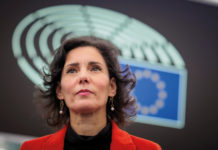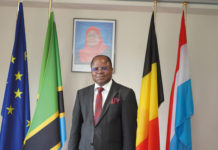DRC: storm warning
After several delays and numerous developments, the electoral process initiated in 2016 finally led, avoiding a long feared chaos, to the inauguration on 24 January of Felix Tshisekedi as President of the Democratic Republic of Congo, succeeding Joseph Kabila who nevertheless retains, through his Common Front for Congo (FCC) platform, a very large majority in the National Assembly and the Senate.
The new President appointed the members of his cabinet at the beginning of March, but negotiations remain very challenging on the distribution of posts in the future government.
Meanwhile, the country is managed by a selected team of ministers in charge of current affairs, who are no longer able to exercise sufficient control over the actions of their administration. In addition, the lack of contacts for new projects is an obstacle to any new investment.
At the same time, the public finance situation remains worrying and fragile, with an estimated budget deficit of US$151 million for the first quarter of 2019 and foreign currency stocks that represent only slightly more than the equivalent of 3 weeks imports (US$901 million at the end of April).
A policy of uncontrolled expenses with the limited financial resources available to the DRC could have disastrous consequences, with which the country has already been confronted.
NICT: a great opportunity for the DRC
Africa, which has the youngest population in the world, has 200 million inhabitants between the ages of 15 and 24. Every year, nearly 12 million young Africans enter the employment market.
The Democratic Republic of Congo alone has 89 million inhabitants, 65% of whom are under 25.
In this context, and more than ever before, it is essential that these young people be able to create their own jobs rather than seek them.
For this purpose, after having been excluded from the first 3 industrial revolutions, Africa must be provided with the necessary tools to be a full-fledged actor in the 4th revolution, this time digital, which will bring the inexorable uberisation of all sectors of industry and services.
Many African countries have embarked on this race against time and, for the first time in the DRC, a position of Special Advisor for Digitalisation has been created in the cabinet of President Félix Tshisekedi.
All over Africa, young African entrepreneurs are leading the way in starting up digital platforms in priority sectors such as education, health care, financial services, agriculture and retail trade.
The continent has more than 300 technology centres and 60 accelerators specialized. Given the creative and entrepreneurial potential of its youth, the DRC cannot afford to fall behind its neighbours in this area.
![[:fr]INTRO CONGO[:]](http://perspectives-cblacp.eu/wp-content/uploads/2019/07/INTRO-CONGO-696x451.jpg)


